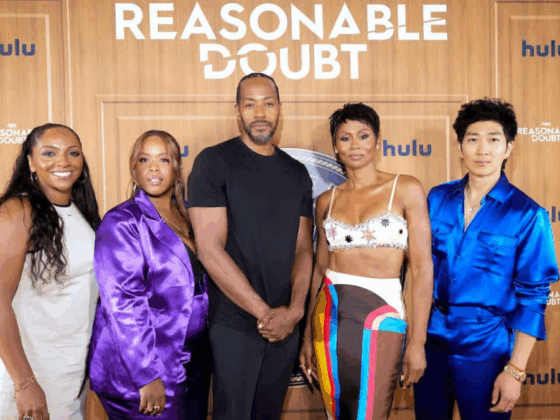
SPOILER ALERT: This review contains key information regarding the third and final season of Wu-Tang: American Saga.
Word is bond, and Wu Wednesdays are back at full speed! With no time to rest, the season picks up with Bobby, aka RZA, dealing with the aftermath of a basement flood that ruined his discs filled with beats explicitly made for his Wu family. As plans shift and the need to be agile grows, so does Bobby’s stress. With record labels demanding more and evolving dynamics within the group, balancing creative and business needs is a common theme seen throughout the groups’ journey throughout the season.
Divine, the business mastermind behind Wu and also Bobby’s brother, continues to focus on keeping the record label happy, which is not an easy feat with the ongoing familial drama between ODB and RZA. The turmoil ensued from ODB feeling disrespected over business decisions being made without his opinion being considered. Divine’s primary goal is making sure bills are paid and deals are made, putting the responsibility of getting things back in order on Bobby. Power, the yin to Divine’s yang, is all about expanding the Wu brand, whether it’s Wu Wear or figuring out other avenues to take over the industry.
ODB, played by TJ Atoms, is a standout as he showcases the rapper in all of his complexities. The artist, well-known for his antics, is a concoction of music, comedy, chaos, and talent. As the season advances, the viewer can enjoy an overview of how ODB took the world inside of his head in his first solo album, Return to the 36 Chambers.

While Method Man and ODB are the frontrunners in popularity, each member shines in their own right and can enjoy the fruits of their labor. Ghostface Killah and Raekwon’s rapport improves so much that Only Built 4 Cuban Linx is born, a project led by Raekwon. Still, Ghostface plays a pivotal role being both on the album cover and showing up on more than half of the 18 songs. While brainstorming for the project, there’s even a mention of a kangaroo-horse hybrid that apparently eats people and is based in Jersey. Whether a true story or not, little nuggets of comedic relief and regional backstories like this are appreciated and feeds into the overall progression of brotherhood and triumph.
An entire episode is dedicated to the lesser-known Wu members, U-God, Inspectah Deck, and Masta Killa. Individually, while they lead opposing lives, more unites them than the former. Dealing with the growing discrepancy between members on the varying levels of independent commercial success, U-God makes a sacrifice that allows him to focus on his family and music. Inspectah Deck dealing with being placed on a temporary backburner and not feeling heard decides to take production matters into his own hands as RZA continues to manage conflicting deadlines. Then, there’s Masta Killa, who at this time only had 1 song under his belt, which begs the question, is he or is he not a full member of Wu-Tang? As we know, things tend to come full circle with enough time and gained insights. The trio deals with matters in a “will he/won’t he” strategy that’s methodical yet captivating which speaks to the storytelling and the production of this show.

The romantic entanglements, or the lack thereof, further showcase how complicated it is to balance love with the obligations of being a star and the subsequent stickiness that may come from enjoying dessert while the main meal grows cold. Regardless, the Wu women play a pivotal role, and we see a glimpse of how they’re impacted by the effects of notoriety.
On a macro level, the visually appealing aesthetics are front and center. The era-accurate fashion and hairstyles transport the viewers right back to the 90s, and guest appearances such as younger Busta Rhymes and Puff Daddy only add to the allure of an era that continues to inspire those worldwide.
For a group of eight core mega-talented men, what they accomplished was nothing short of a miracle, and there are lessons that anyone can learn from every member of the Wu family. Each member of the Wu-Tang Clan and associates play an integral role in their journey to success and rap prestige. Divine maneuvering through corporate America, strategically gaining respect from those who see him as an “other,” is a tale as old as time. Anyone who has had to play mastery mental chess, especially people of color, knows how exhausting it can be to know they have tangible excellence in their palms but cannot get the respect and time that they deserve. But as we see, with a little finesse and preparation, there are no limits to what anyone can accomplish.
Prepare to enter the chamber and tune in to see how the group climbs the ladder to cement their legacy as Hip-Hop royalty.







